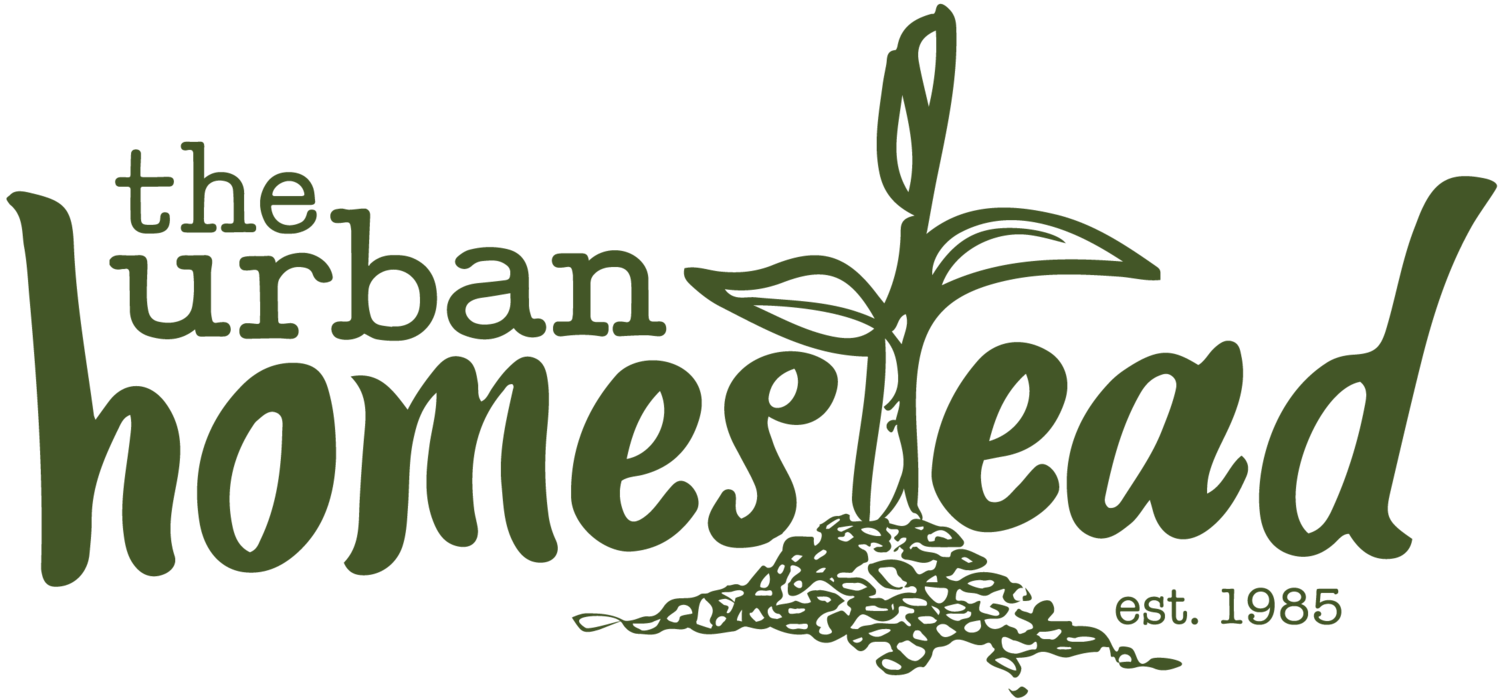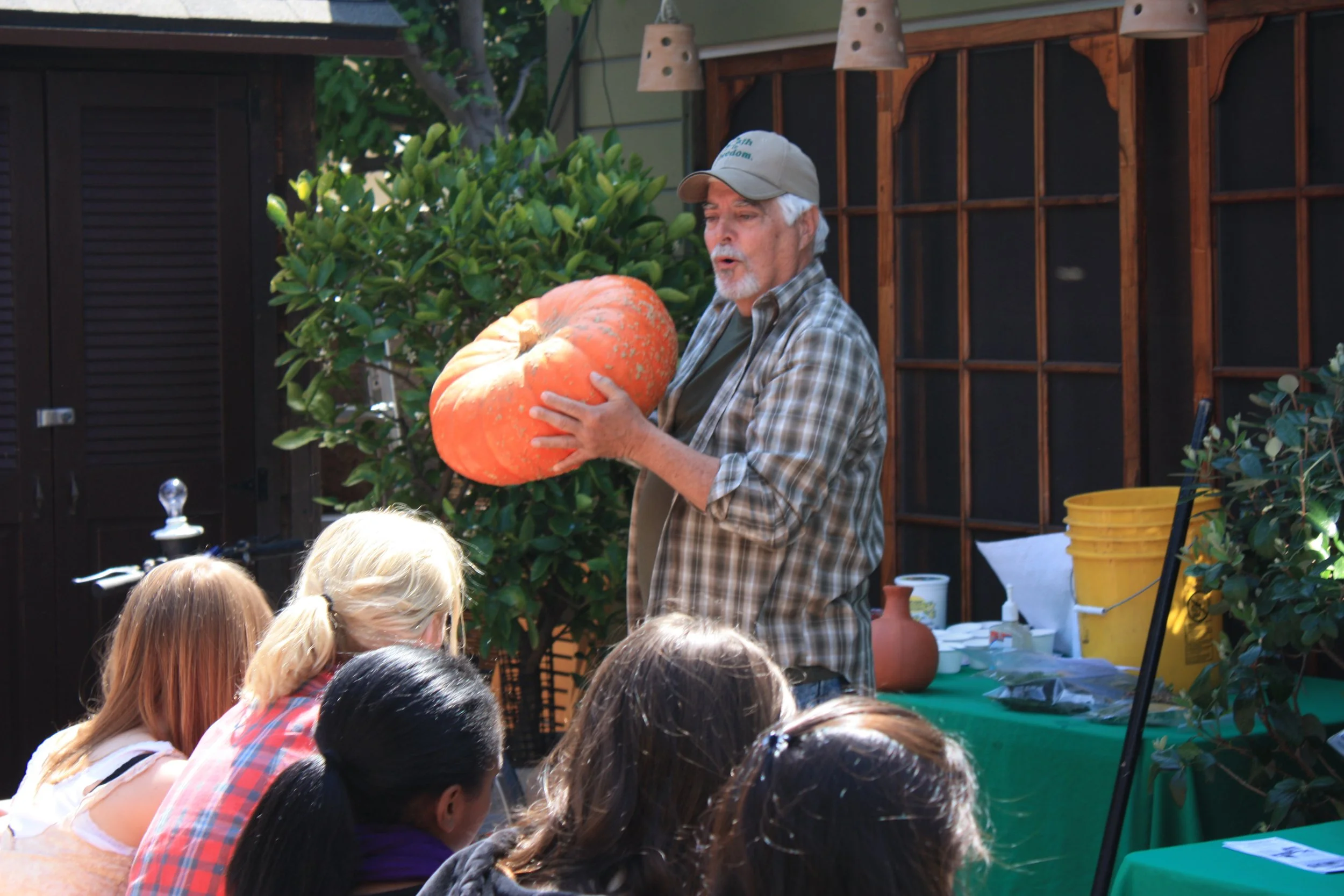Jules Dervaes JR 1947-2016
Jules Dervaes came of age during the turmoil of the late 1960s. Anxious for the future of his family, he moved to New Zealand in 1973, where he homesteaded in an abandoned gold mining town and trained as a beekeeper. After returning to the U.S., he lived on 10 acres in central Florida. He was a free thinker, inventive, creative — a true old-fashioned pioneer but one constantly searching the future.
He was a self-employed entrepreneur throughout most of his adult life in a series of successful startups from beekeeping and naturally-produced honey, to low environmental impact landscaping and lawn maintenance. A former schoolteacher with a degree in math, Jules Dervaes eventually found himself stuck in the wasteland of Los Angeles despite wanting to find a self-sufficient farm somewhere to escape to. Behind the plaid shirts and the gray hair lives a progressive change-maker who got angry about the GMOs invading the food supply. His solution — grow his own food and say to heck with the supermarkets and the over processed so called food that was being shopped to the public.
Beginnings
Originally from Tampa, Florida, Jules Dervaes (Dur-VAYS) graduated from Jesuit High School as valedictorian and was awarded a full academic scholarship to Loyola University in New Orleans in 1965. While studying there, he became increasingly disillusioned with the American way of life.
College Years
After graduating in 1969 with a B. S. in Math and a minor in Computer Science, he began a search for a more meaningful and service-oriented lifestyle. As a conscientious objector, he decided to serve others through teaching.
Ultimately, this career choice gave him keener insight into the futility of America’s future and its inability to nurture the human spirit. As a teacher, he saw first-hand the lack of character development in some students who were to be our country’s next generation of parents. Convinced that there must be a better society and more humane way of life somewhere, Jules backpacked through Europe as he considered the future course for his life.
Homestead Journey
In 1973, with a briefcase whose only contents were the first 13 issues of Mother Earth News, he immigrated to New Zealand, believing that such an isolated, egalitarian society could assist him and his family in living a more integrated, meaningful life. In small town called “Stafford” on the west coast of New Zealand’s rural South Island (near Hokitika), Jules embarked on the path towards self-sufficiency and began his homesteading journey. He became a beekeeper, grew his own food, kept chickens, ducks and goats, collected rain water for his family’s water supply and lived without most modern conveniences.
But a series of events and circumstances eventually brought Jules and his young family back to Tampa, Florida in 1975, where they lived on 10 acres in the country surrounded by pastures and orange groves. In this new location, Jules re-established his beekeeping business, started a lawn maintenance business and resumed gardening, while sometimes teaching at local schools.
In 1984, the family made another move, this time to Pasadena, California, where Jules re-entered college and achieved an additional degree in theology. While residing in Pasadena, he continued hobby gardening and beekeeping in varying degrees over the years.
Jules still longed for the simpler life and the dependence on the land he had in New Zealand. He planned to “one day” return to that lifestyle and recreate what he had lost. Acquiring the acreage to rebuild that dream proved to be difficult, however. Circumstances, situations, and distractions continually thwarted attempts of a return to country life. And so, Jules and his family continued to dream of “one day” finding “freedom” by returning to the land.
In 2001 with Y2K alert and the growing threat of GMO foods was the final spark that propelled Jules to strive to become self-reliant where he presently lived. Not waiting for those dreams of acreage to become reality, Jules’ and his family’s goal was to incorporate sustainable skills and practices in an urban environment and to challenge themselves to push the limits with back-to-basic innovation. It was with the thought of “just how self-sufficient can we become in an urban environment?” that Jules and his family began recording their progress which they detailed on their website.
Jules Dervaes Jr passed away suddenly in December 2016.
The homestead journey continues with his children, Anais, Justin and Jordanne.
HOMEGROWN REVOLUTION
Homegrown Revolution (2017) is a short introduction to the homegrown project that has been called a new revolution in urban sustainability. In the midst of a dense city setting in downtown Pasadena, radical change is taking root.



